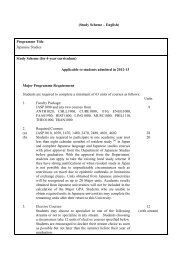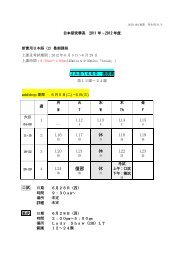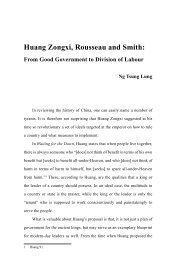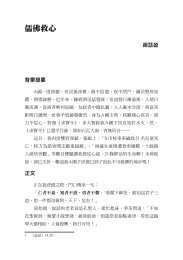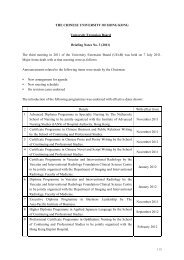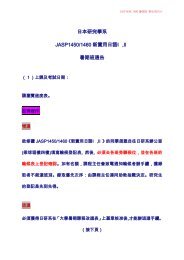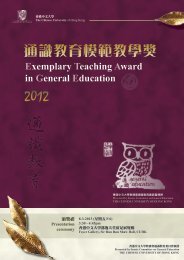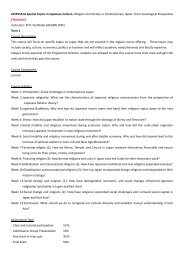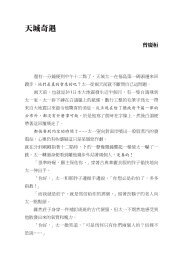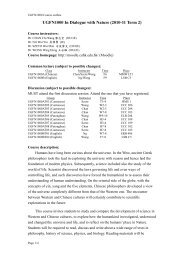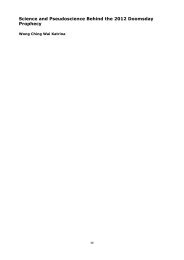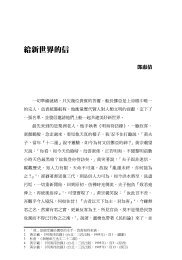ä¸è¼å ¨æ¸ - The Chinese University of Hong Kong
ä¸è¼å ¨æ¸ - The Chinese University of Hong Kong
ä¸è¼å ¨æ¸ - The Chinese University of Hong Kong
You also want an ePaper? Increase the reach of your titles
YUMPU automatically turns print PDFs into web optimized ePapers that Google loves.
32 Special Topic: Assessment in <strong>University</strong> General Education Program<br />
Example 2 – Ethics in Public Life<br />
This example highlights the challenge <strong>of</strong> developing and delivering an<br />
interdisciplinary general education course with multiple instructors. Faculty<br />
from seven academic disciplines across colleges/schools collaborated<br />
to develop this new course, entitled “Ethics in Public Life.” This course<br />
was a pilot “capstone” general education course, designed to encourage<br />
the integration <strong>of</strong> disciplinary-specific knowledge and skills with general<br />
education learning. <strong>The</strong> affective learning outcomes related to students’<br />
development <strong>of</strong> an interest in, and a heightened awareness <strong>of</strong>, the ethical<br />
dilemmas that they face in everyday life.<br />
Intended Learning Outcomes (ILOs)<br />
As we began meeting to plan the course, we quickly learned that<br />
reaching a consensus on course goals and intended student learning outcomes<br />
was going to be time-consuming. <strong>The</strong> discussion amongst my colleagues<br />
while planning the ethics course was instructive as to why affective learning<br />
outcomes are <strong>of</strong>ten avoided. Specifically, there was a deep misunderstanding<br />
and divide between faculty who advocated for and against our stating explicit<br />
affective student learning outcomes. Those who opposed the use <strong>of</strong> affective<br />
learning outcomes did so because they initially thought that we were trying to<br />
teach specific affective or moral truths (a specific way to think, or a “correct”<br />
response to an ethical dilemma). <strong>The</strong>y argued against efforts to get students<br />
to conform, because they felt that the students would simply learn what they<br />
were “supposed” to say and would say it, regardless <strong>of</strong> their true beliefs<br />
or attitudes. Over time, those who advocated for the inclusion <strong>of</strong> affective<br />
learning outcomes within the course were able to convince the other faculty



